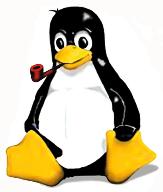Slackersbible
The goal of the Slackware Handbook project is to create a document that closely resembles the FreeBSD Handbook in framework and content, but all about Slackware Linux. Envisioned by Narayan Newton and brought to life by Mad Penguin, the Slackware Handbook is unlike any other technical documentation in the world in that it is a completely 'live' medium. This is one book that will never age, never become obsolete, never collect dust... all because it is in perpetual development by dedicated technology professionals from around the globe.

Anyone will be allowed to contribute, but everything submitted to the book is moderated by a peer review system. If something is inaccurate or misleading, it will be caught and fixed. If something is out of date, it will be updated. In keeping with the true nature of Open Source, it will be completely open for anyone to read, download, and share. The Slackware Handbook will prove to be one of the most accurate technical documents on the planet. This Handbook is based on the work of the FreeBSD Documentation Project Slackware Handbook
Make sure to check the submission queue on that project. It's equally important to verify content as well checking for spelling mistakes. This makes our job easier as well as the jobs of those who will need to revise your work.
Have Fun!!!
Table of Contents
edit- About
- Preface
- Getting Started
- Introduction
- Installing Slackware Linux
- UNIX Basics
- Synopsis
- Virtual Consoles and Terminals
- Permissions
- Processes
- Text Editing
- Installing Applications
- How to compile source code
- The X Window System
- Synopsis
- Getting Started
- Common Tasks
- Desktop Applications
- Multimedia
- Synopsis
- Configuring sound
- Configuring the Slackware Kernel
- Configuring your first linux 2.6 kernel
- System Administration
- Configuration and Tuning
- The Slackware Booting Process
- Users and Basic Account Management
- Security
- SELinux
- Storage
- Volume Management
- Localization
- The Cutting Edge
- Software Management
- Network Communication
- Appendices
Source
editFrom the MadPenguin Slackware Handbook.